From Octavian to Augustus: The Making of Rome’s First Emperor
Augustus, the first emperor of Rome, was the most successful ruler of the Roman Empire.
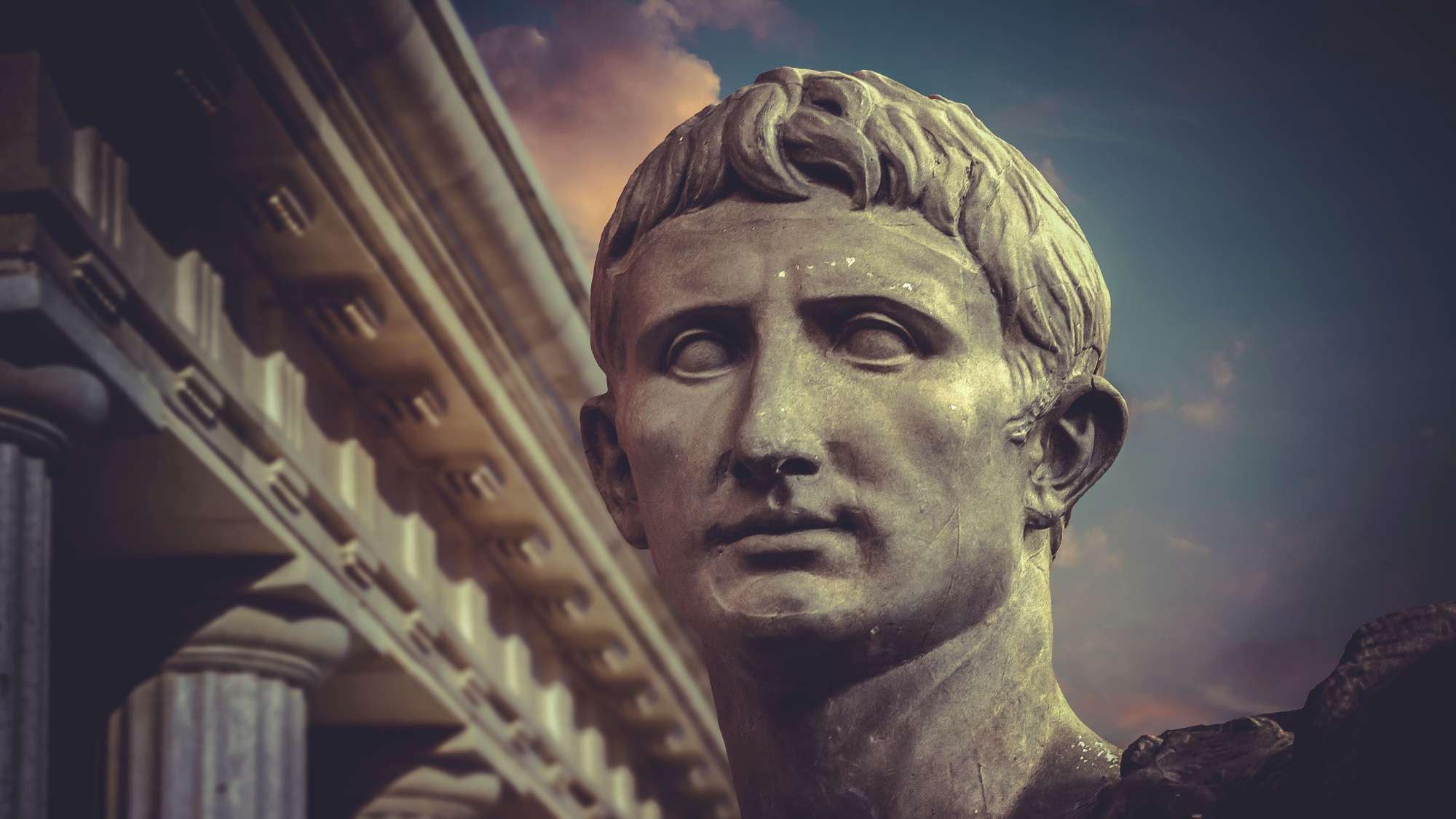
Gaius Julius Caesar Augustus, originally known as Octavian, was the founder of the Roman Empire and its first emperor. He ruled from 27 BC until his death in AD 14. Augustus' reign marked the beginning of the imperial cult and ushered in a period of relative peace known as the Pax Romana or Pax Augusta, during which the Roman Empire experienced minimal military conflict. He also established the Principate, a system of governance that lasted until the Crisis of the Third Century.
Octavius: A Master of Public Image Creation
Augustus, born Gaius Octavius on September 23, 63 BC, became the first Roman emperor and the key figure behind the transformation of the Roman Republic into the Roman Empire.
Although his family, the Octavii, came from humble, non-aristocratic origins in Velitrae, Augustus' fortunes changed when he was adopted by Julius Caesar. This adoption elevated his status and gave him the name Gaius Julius Caesar, which linked him closely with his famous great-uncle. Augustus carefully managed his public image, ensuring his connection to Caesar was at the forefront while downplaying his less distinguished roots.
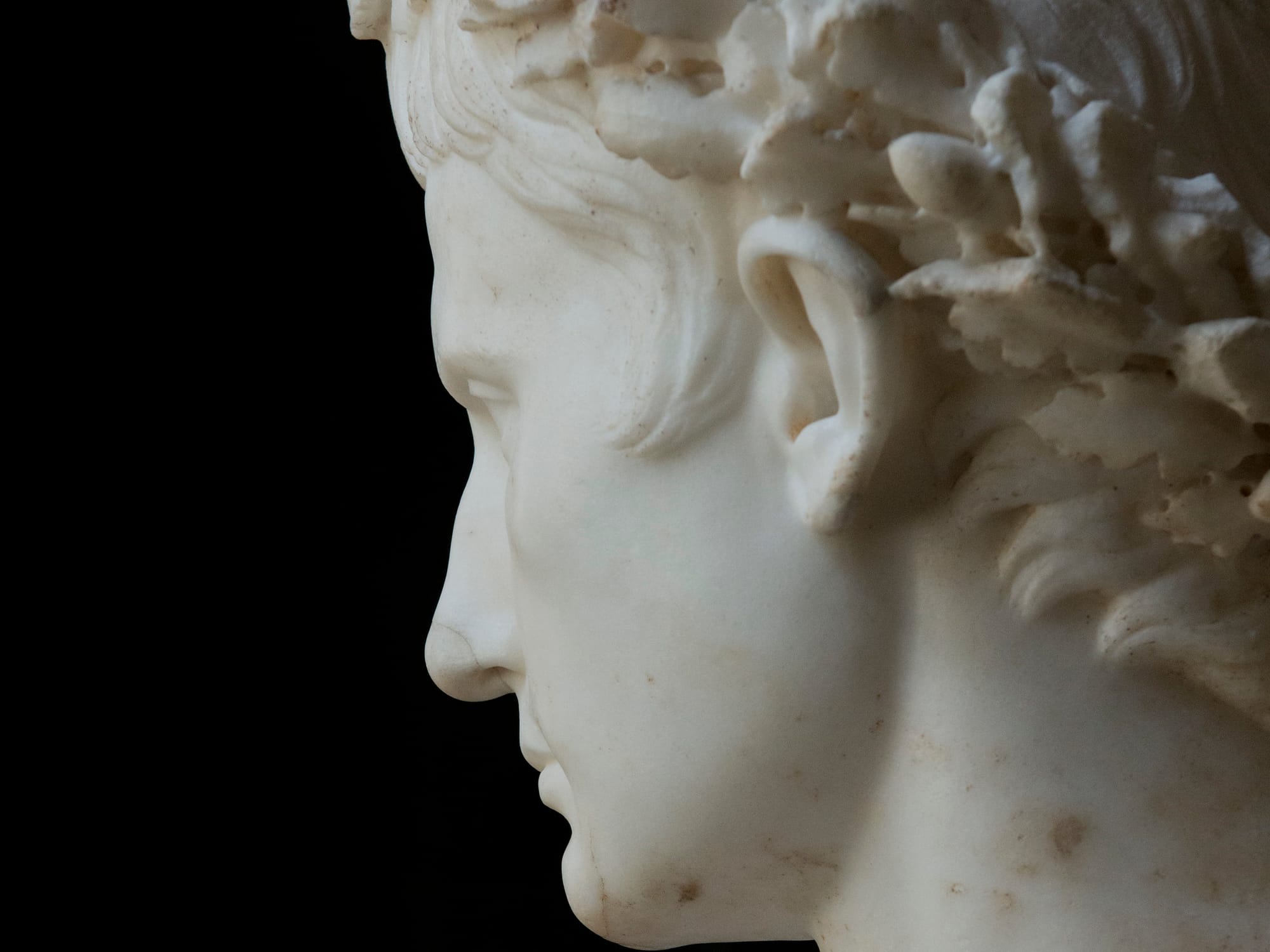
As Augustus rose to prominence, he skilfully crafted his legacy.
Augustus’ portrait. Credits: Egisto Sani, CC BY-NC-SA 2.0
He acknowledged his modest background in his early writings but shifted focus as he consolidated power. By 27 BC, he was awarded the title "Augustus" by the Senate, marking his transition from a mere political figure to the ruler of the Roman world. Unlike Julius Caesar, who is remembered for his military achievements, Augustus’ genius lay in governance and political maneuvering.
He also established the Principate, a system that preserved the outward appearance of the Republic while granting him near-absolute authority. In shaping his public persona, Augustus used his modest beginnings to his advantage early in his career but gradually erased his family origins from official records.
In his later work, the Res Gestae, he emphasized his role in restoring peace and stability to Rome, omitting any references to his father, mother, or stepfather. This was part of a broader strategy to highlight his divine connection to Julius Caesar and his role as the savior of the Roman state.
Augustus also employed propaganda to enhance the status of the Octavii, crafting a more prestigious lineage for his family. This included fictional elements to tie them to Rome’s noble past, though Augustus remained focused on his connection to Julius Caesar, which legitimized his authority.
His ability to balance political innovation with tradition allowed him to create a stable and lasting government. Throughout his reign, Augustus proved to be a master of statecraft, carefully implementing reforms that maintained the appearance of the old Republic while securing his own control. His political acumen allowed him to create a system that ensured long-term stability, making him one of the most successful rulers in Roman history.
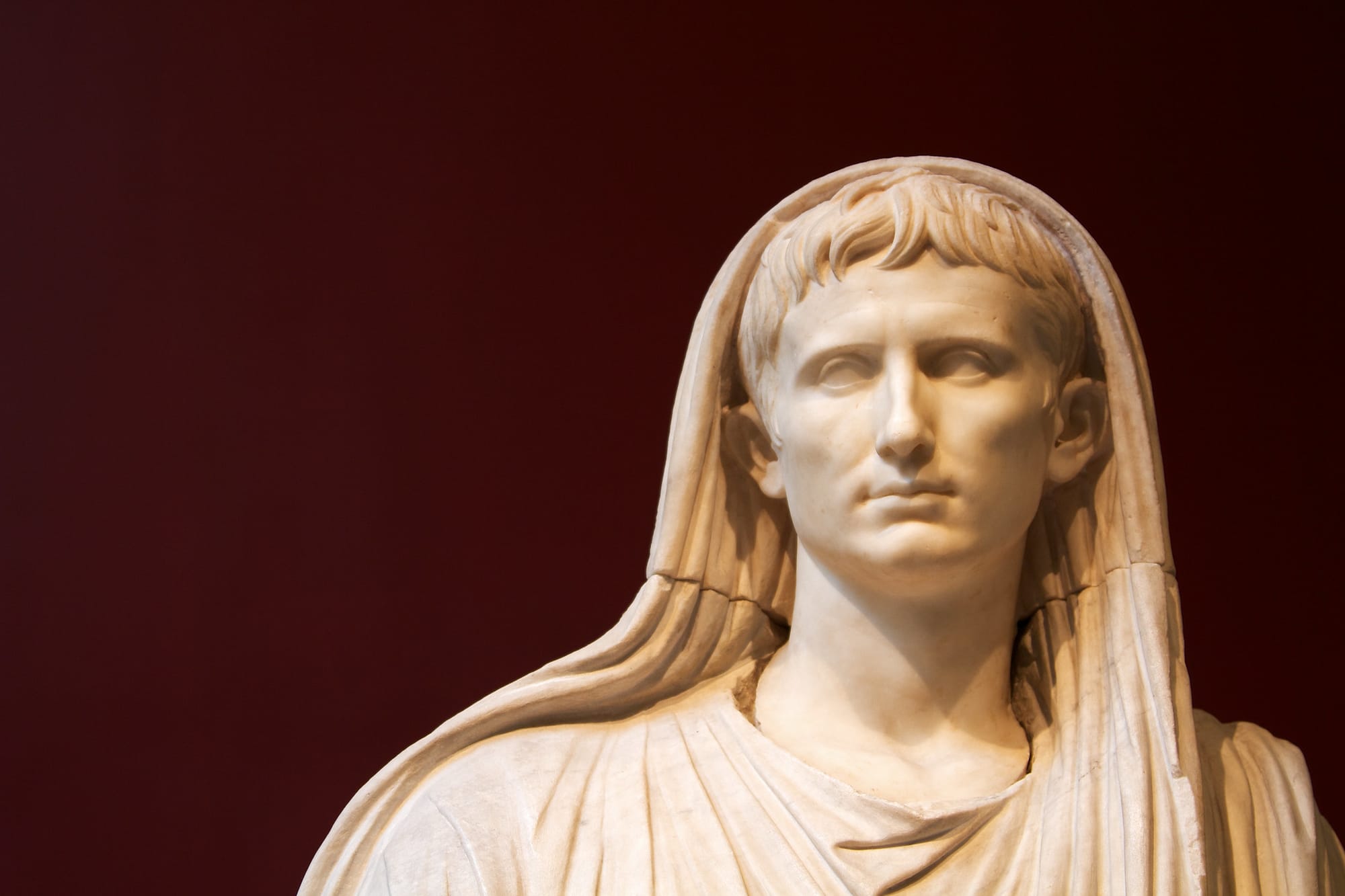
In the Shadows of History
‘And it came to pass in those days, that there went out a decree from Caesar Augustus, that all the world should be taxed. (And this taxing was first made when Cyrenius was governor of Syria.) And all went to be taxed, every one into his own city.’
The Gospel according to Luke, later first century AD
Despite Augustus' profound impact on the Roman Empire and Western culture, his legacy is less well-known to the general public compared to figures like Julius Caesar, Antony, and Cleopatra.
For most people, Augustus is mainly recognized from mentions in Christmas services, and fewer even realize that the month of August is named after him. While Julius Caesar and others have captured the popular imagination through literature and film, Augustus has not received the same attention, partly because his life lacks the dramatic tragedies that make for compelling narratives, such as those found in Shakespeare's works.
In Shakespeare’s plays Julius Caesar and Antony and Cleopatra, Augustus (as Octavius) appears as a cold, manipulative foil to the more dynamic Antony. This portrayal, already present in ancient sources, was amplified in modern adaptations, such as Roddy McDowall's icy depiction in the 1963 film Cleopatra.
As a result, Augustus is often overshadowed by characters who seem more tragic and passionate. Even in more sympathetic portrayals, like in Robert Graves’ I, Claudius, Augustus is presented as an aging, emotional figure, often outmaneuvered by his wife Livia. Such portrayals may entertain but fail to capture the full scope of Augustus' achievements and importance in history.
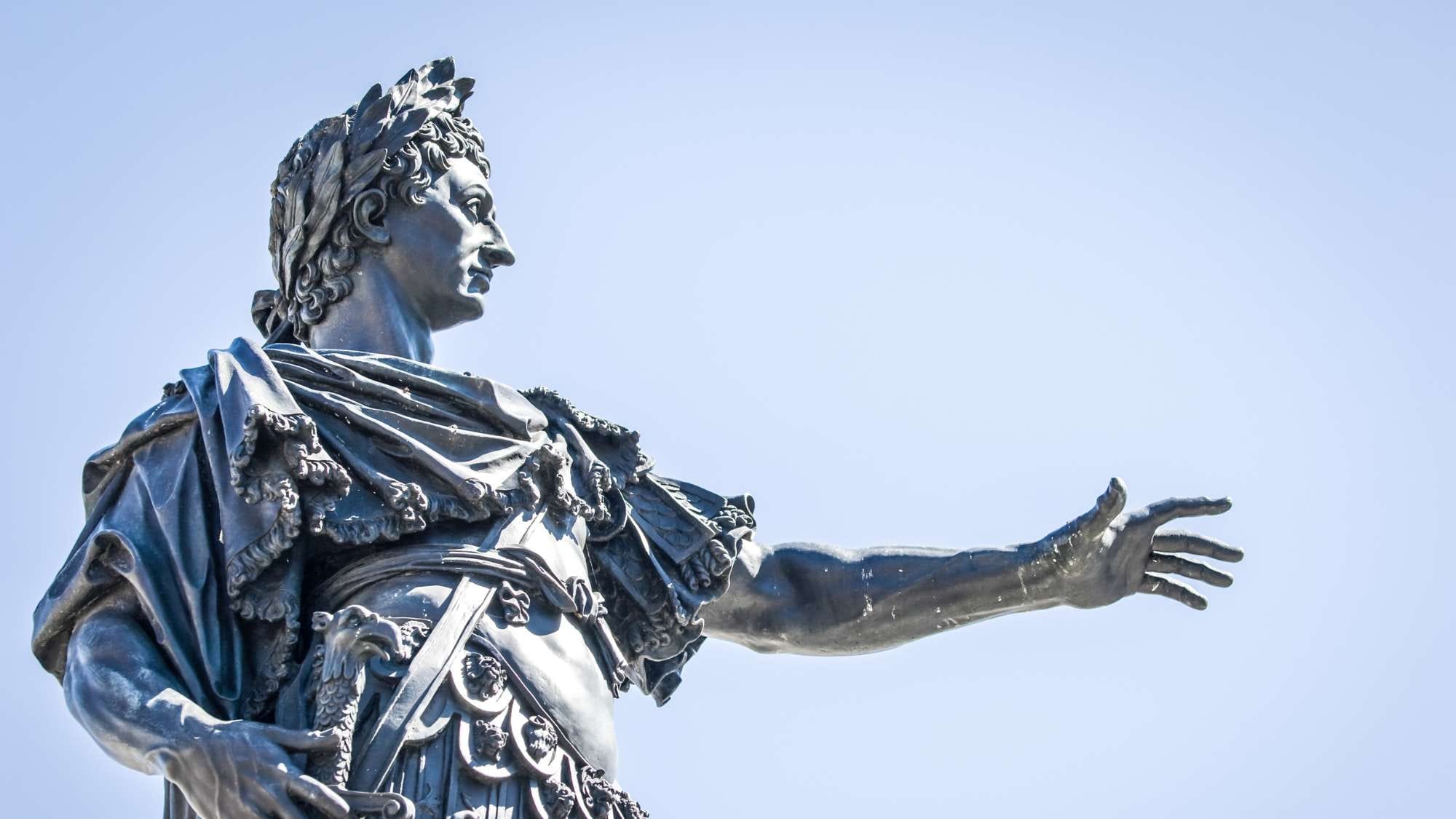
Augustus’ Biographies; a Challenge
There is much more to Augustus than these depictions suggest. His success in establishing a stable government was not inevitable, nor was it a result of a long-term master plan. In his early years, Augustus took significant risks, especially during the civil wars, and often relied on improvisation rather than careful strategy.
While he later became known for his moderation, his early career was marked by intense passion and ruthlessness, as evidenced by his relationship with Livia and his participation in the brutal proscriptions during the Second Triumvirate. (Augustus. First Emperor of Rome, by Adrian Goldsworthy)
Augustus’ early life was filled with violence, much like his contemporaries. Alongside Antony and Lepidus, he was responsible for the deaths of many during the proscriptions, a period of mass murder sanctioned by the Triumvirs.
Though his later moderation has softened his image, the contrast between the young, ruthless Augustus and the older, more restrained emperor continues to puzzle his biographers. Many modern accounts divide his life into two parts: the tumultuous rise to power leading up to the Battle of Actium, and the later years of intrigue surrounding his succession plans.
Biographers often follow this divide, focusing either on Augustus’ rise to power or on his governance and political reforms. While academic treatments delve into specific topics like Augustus' relationship with the Senate or his impact on the provinces, his personal story tends to fade into the background, making it difficult to connect the ambitious young ruler with the emperor who brought peace and stability to Rome. (Augustus, by Patricia Southern)
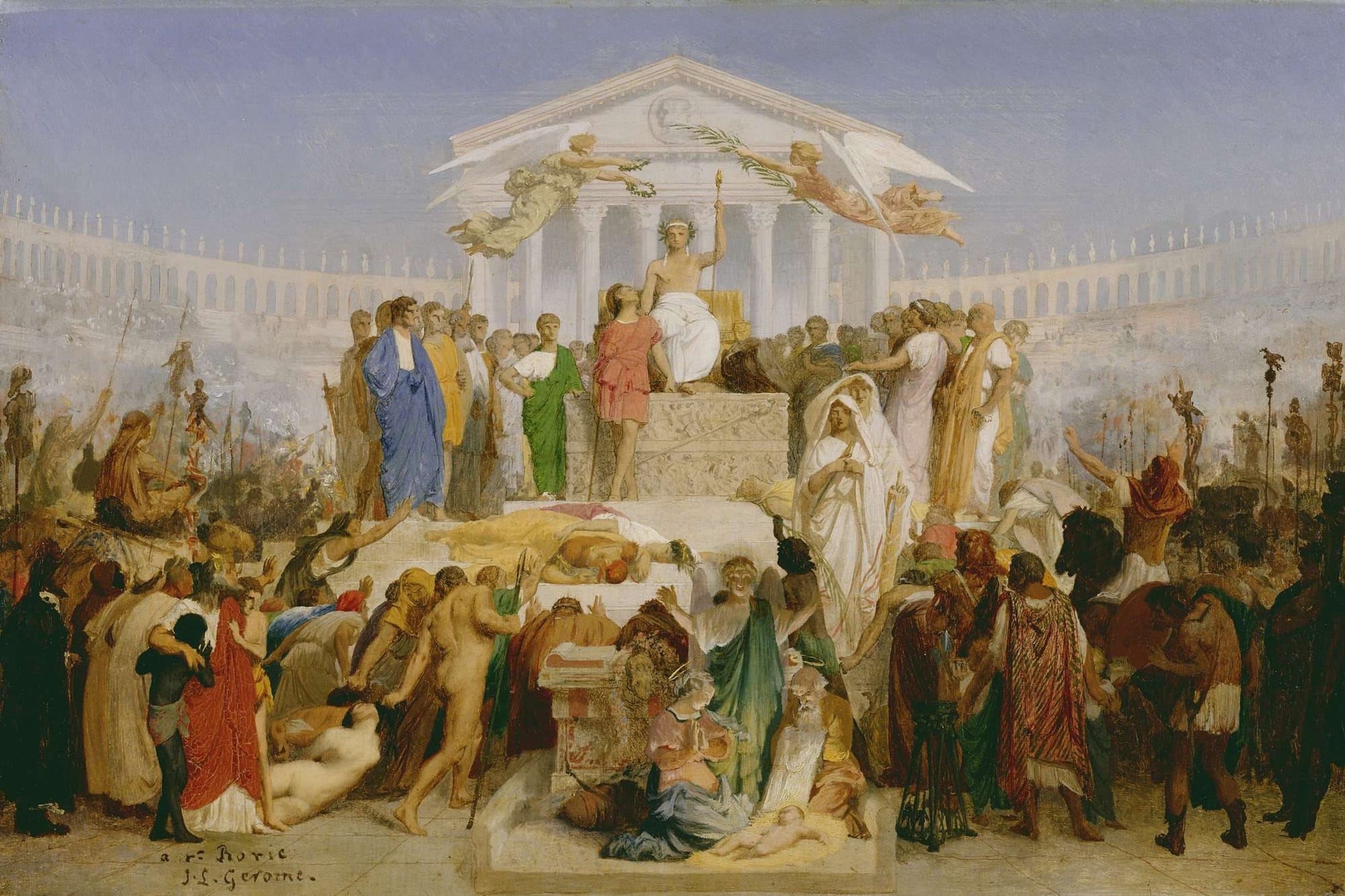
The Succession and Inheritance
When Octavius received news of Julius Caesar's assassination while in Apollonia, he quickly gathered his closest advisors to discuss the situation. Some urged him to immediately go to the Macedonian army and rally them, trusting in their loyalty to Caesar. Others felt it was too dangerous for someone so young and inexperienced, believing Caesar’s political allies would handle the situation. Octavius decided to wait until he reached Italy to make a more informed decision about his next steps.
Upon landing at Hydruntum, Octavius learned the details of Caesar’s will. He had been adopted as Caesar’s son and named the primary heir to three-quarters of Caesar’s estate. While deeply moved by this revelation, he remained cautious and resolved not to act impulsively. As he traveled toward Brundisium, letters from his mother and stepfather urged him to reject the inheritance, but Octavius made up his mind, declaring, "I will accept."
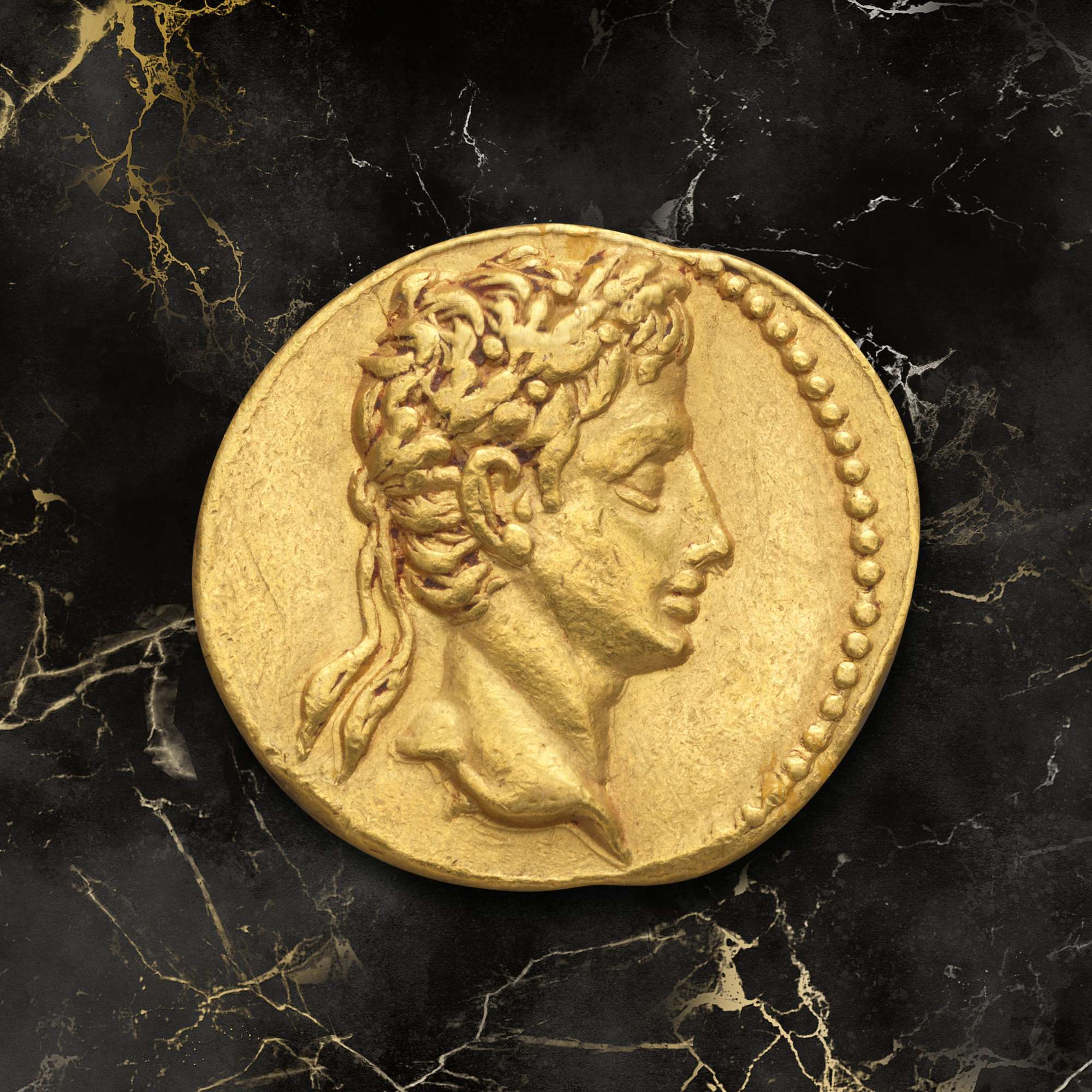
From that point forward, his associates began addressing him as Gaius Julius Caesar, despite the formal adoption process being delayed.
Roman Gold Aureus Coin, depicting Emperor Augustus. Credits: MET, Tatyana Cherkashina, Illustration: Roman Empire Times
Arriving in Rome, Octavius publicly accepted Caesar’s inheritance and honored his will, pledging to carry out his uncle’s legacy, including organizing games and distributing funds. Despite his respectful tone, Octavius made it clear he would not forgive Caesar’s murderers, stating that "all that was needed was an accuser," indicating his long-term intentions for retribution.
His immediate focus, however, was securing his position, which brought him into conflict with Mark Antony, who had taken control of Caesar’s financial resources. Antony, who had seized a large sum of public money for his own use, became an obstacle to Octavius' efforts to claim Caesar’s estate.
Tensions between Octavius and Antony continued to grow, with Antony’s allies delaying Octavius' formal adoption and preventing his election as tribune. Antony’s disrespect toward Octavius, including barring him from placing Caesar’s gilded chair in the Circus at his games, showed the increasing animosity.
Octavius, however, remained calm, waiting for the right moment to assert his authority. Cicero noted in a letter that Octavius treated him "with great respect," though Cicero remained skeptical of Octavius' ultimate intentions.
Despite rumors that Octavius had plotted to assassinate Antony, he denied these accusations, offering to serve among Antony’s bodyguards to dispel suspicion. Antony, in turn, accused Octavius of trying to discredit him, but tensions continued to escalate, setting the stage for their inevitable clash.
Augustus, the Governor
Augustus has often attracted less attention from biographers compared to Julius Caesar, perhaps due to the perception that a soldier's life is more engaging than that of a statesman, or because Augustus supposedly lacked the genius that distinguished his uncle.
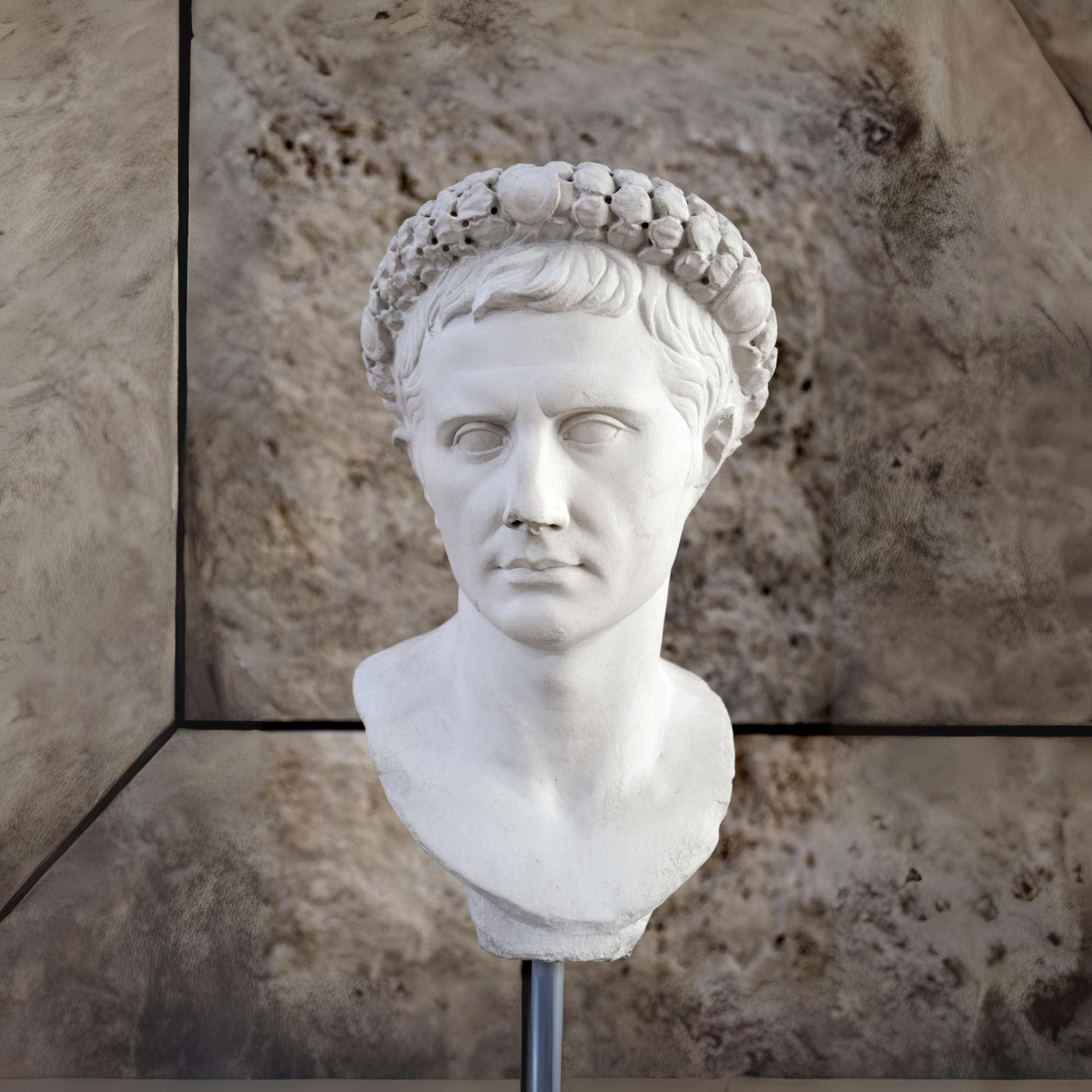
However, Augustus stands out as one of the most successful rulers in history.
Augustus bust. Credits: PaoloGaetano from Getty Images Signature, by Canva
When he came to power, Rome seemed on the verge of collapse, but he managed to restore order from chaos. He systematically eliminated opposition, established a new form of government without radically breaking from the past, and revitalized old institutions with new meaning.
Augustus portrayed himself as a reformer rather than a radical, ensuring that even those who lost power were pacified without losing their sense of dignity. His relentless efforts brought increased security, prosperity, and a better quality of life throughout his empire.
Unlike many rulers who relied on their ministers for success, Augustus remained at the center of his government, guiding his ministers and agents, whose individual abilities may have surpassed his in specific areas. Still, none could replace him.
Augustus was the organizing force, always attentive to the details of governance, with a dignified presence and personal grace that garnered respect and reverence for his position. His legacy was so powerful that even some unworthy successors could not completely tarnish it. It was Augustus, not Julius Caesar, who truly founded the Roman Empire, and it was to him that future emperors looked as the origin of their power.
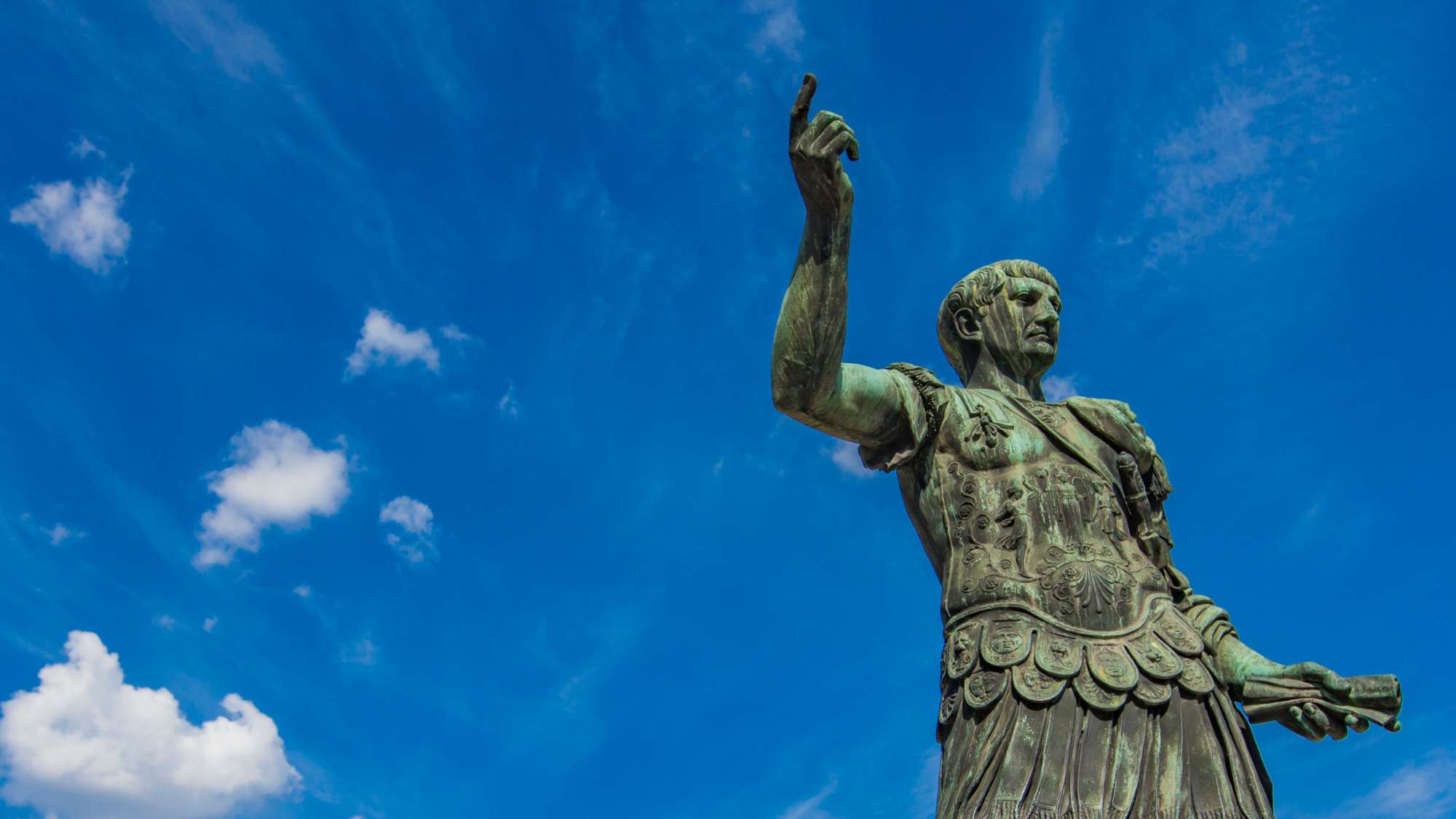
Despite these monumental achievements, Augustus has garnered less interest than Julius Caesar, whose military conquests, particularly in Gaul, and daring victories in the civil wars, have captured more attention. Consequently, fewer modern scholars have studied Augustus' character and aims in depth.
For the later years of his reign, historians tend to focus on military matters rather than administration. Suetonius, while providing valuable anecdotes, lacks chronological consistency and often fails to separate rumor from fact. Dio Cassius, though honest and straightforward, becomes less detailed as Augustus’ reign progresses. Velleius Paterculus, who could have offered more insights into the later Germanic wars, is often vague and tiresome in his overwhelming praise for Tiberius, with a frustratingly ornate style of writing.
Despite these limitations, Augustus' administrative accomplishments and the lasting stability of his reforms mark him as a ruler of unparalleled success. (Augustus: The Life and Times of the Founder of the Roman Empire, by Evelyn S. Shuckburgh)
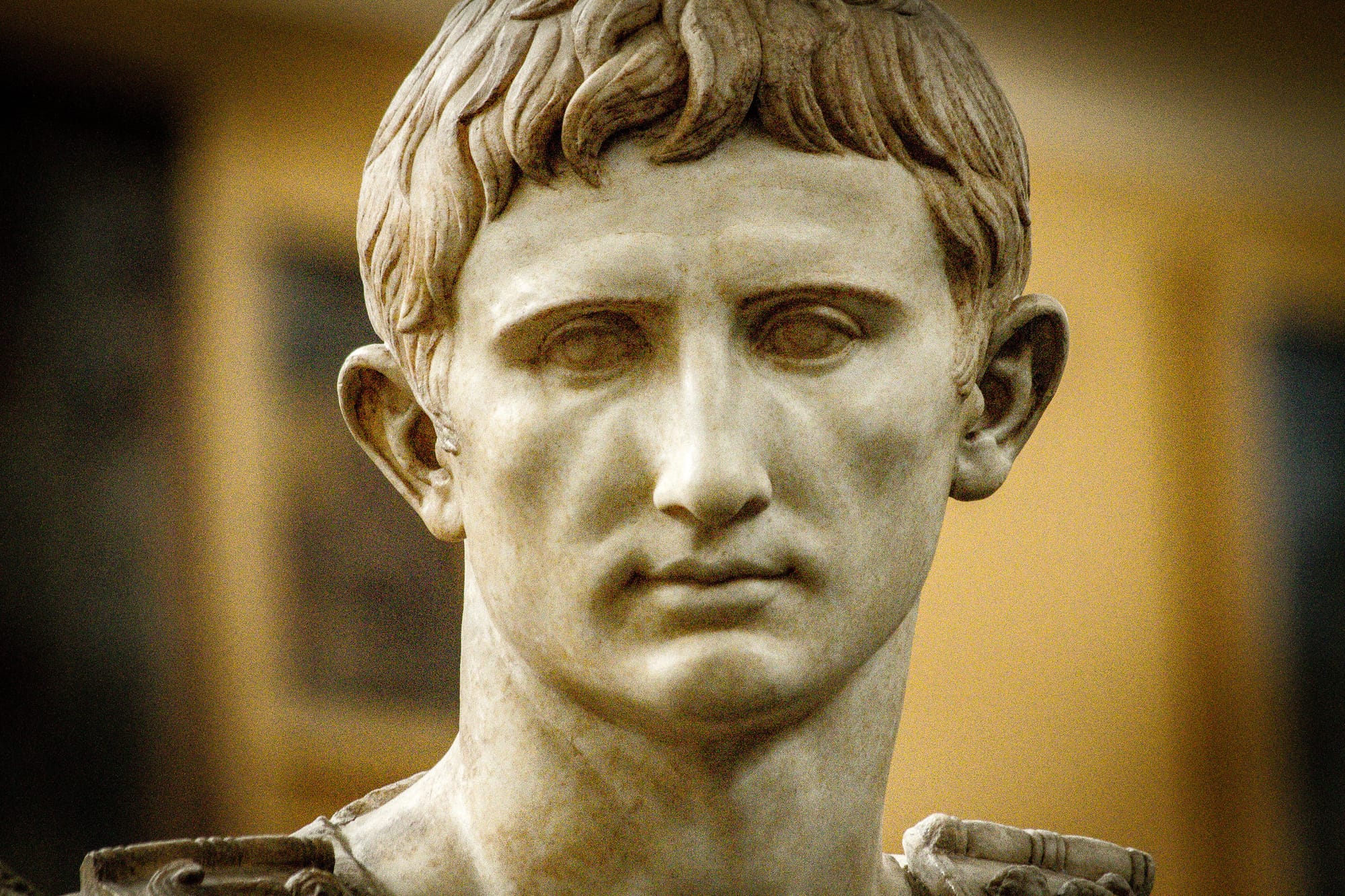
Building an Empire
After the fall of Alexandria and the deaths of Antony and Cleopatra, Octavian emerged as the unchallenged ruler of Rome. Antony’s troops joined him, and he claimed Egypt's wealth. It’s said that Octavian might have wanted to capture Cleopatra alive for his triumphal procession in Rome, though she ended her life before that could happen.
The famous story of her death by an asp hidden in a basket of figs, believed to confer divinity, remains deeply ingrained in popular consciousness. Though Octavian appeared to try to save her, his actions suggested this might have been a formality. However, he granted her an honorable burial alongside Antony, though he ruthlessly ordered the executions of Caesarion and Antony’s teenage son Antyllus to eliminate potential threats.
With all rivals removed, Octavian stood as the undisputed ruler of Rome, securing Egypt as his personal province, a key source of his wealth. Unlike previous civil wars, Antony’s defeat was final—no one rose to continue his cause, and Octavian’s dominance was unchallenged.
Although there was some lingering discontent, it never escalated into significant opposition. Scholars debate the extent of resistance to Augustus, but some conclude that any opposition was scattered and minimal, and Octavian’s loyal military helped secure his position without needing to resort to military force.
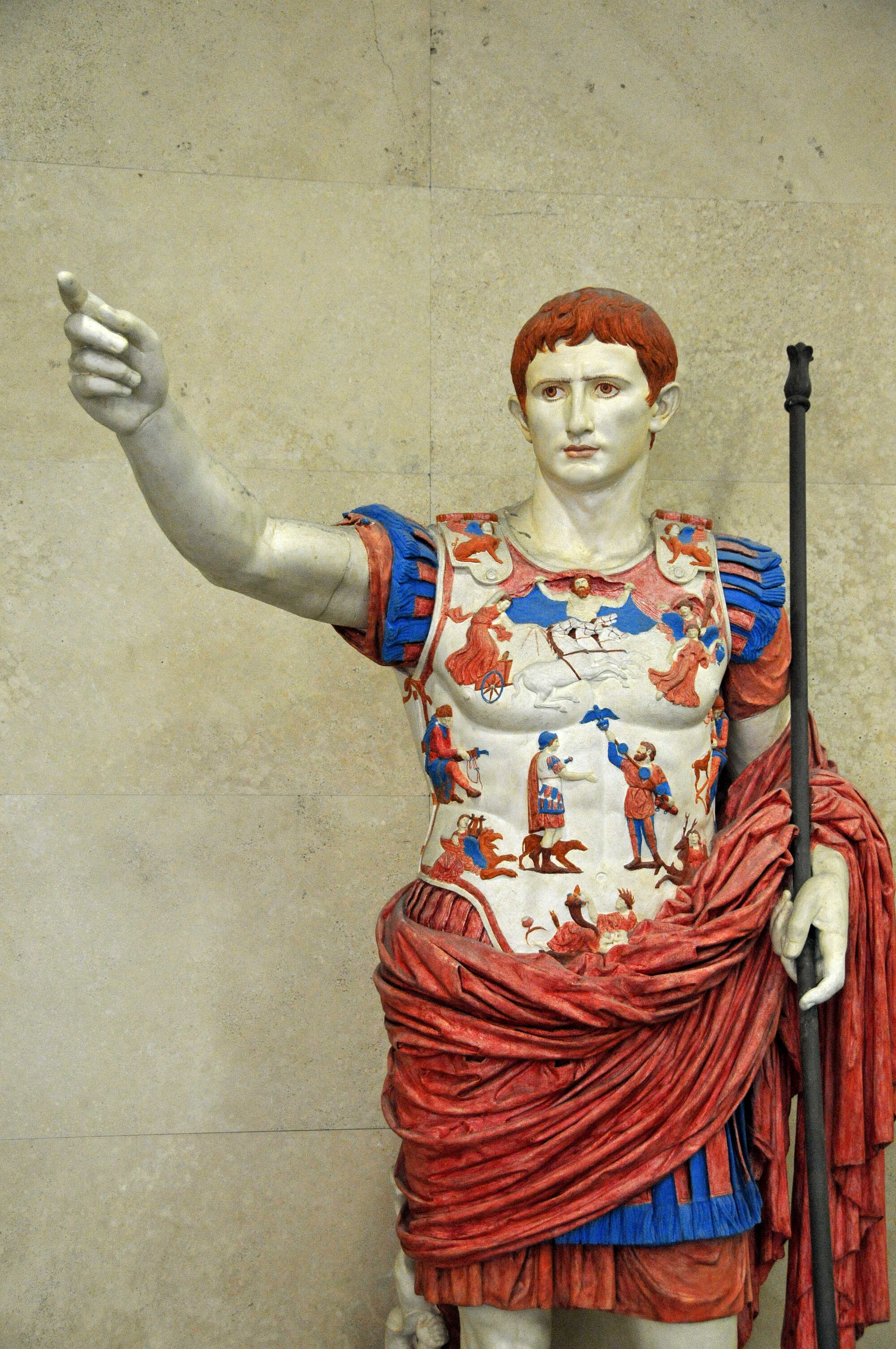
Octavian presented himself not as a dictator, but as ruling by "universal consent," which gave him legitimacy beyond mere military power. While the Triumvirate had officially ended, he continued to exercise its authority discreetly. By the time he wrote the Res Gestae, Octavian had distanced himself from his earlier, more ruthless years, instead emphasizing his connection to Caesar and his role in restoring Rome.
His rise to power was not inevitable, and his path was filled with challenges that required careful political maneuvering. He maintained control without appearing to seize power by force, crafting a public image of calm and capable leadership. His transformation from Octavian to Augustus, and the establishment of the Roman Empire, was a slow, cautious process that required flexibility, careful planning, and adaptability to the ever-changing political landscape.
In the seven years following the defeat of Antony and Cleopatra, Augustus consolidated his power and established the new Roman constitution. Often described as a partnership between Augustus and the Senate, the balance of power was always in favor of Augustus.
While he maintained the appearance of respecting the Senate and basing his authority on traditional Republican offices, he gradually became a de facto monarch, limited only by certain societal and circumstantial constraints. Key developments occurred in 29, 27, and 23 BCE, but the process of cementing Augustus’ rule was gradual and unfolded over several years.
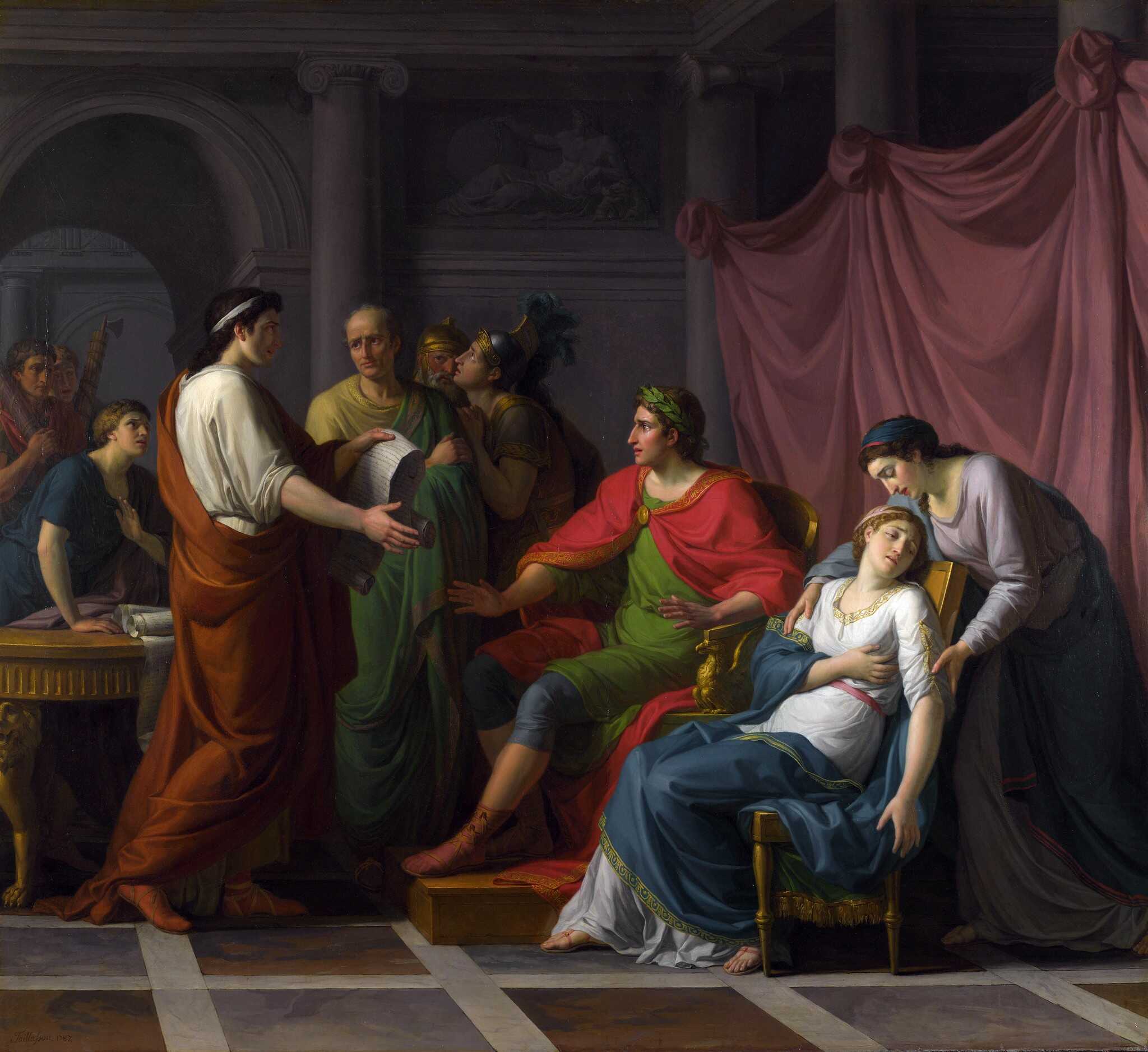
A crucial aspect of Augustus’ consolidation of power was the disbandment of the large military forces that had amassed during the civil wars. The wealth of Egypt, now under his control, allowed him to settle over 300,000 veterans with land grants, preventing the unrest that could have arisen from dissatisfied soldiers. This process helped revitalize towns in Italy and extended to provinces like Africa and Spain, where veteran colonies were established under Roman law, often enjoying special privileges.
Augustus also worked to restore the grandeur of Rome, focusing on rebuilding temples and public works, while reinforcing Rome’s central role in the Empire. His legitimacy was further strengthened by honors conferred by the Senate, including the celebration of three triumphs and sacred status for key dates in his life. He also gained significant powers, such as lifetime tribunician authority, granting him control over legislation and other key areas of governance.
One of Augustus’ major reforms involved restructuring the Senate. He reduced its numbers, ensuring its members were of higher quality and loyalty. Though he gave the appearance of respecting Republican institutions, he ensured his dominance by controlling key aspects like the military and the imperial treasury, sidelining the Senate’s influence in practice.
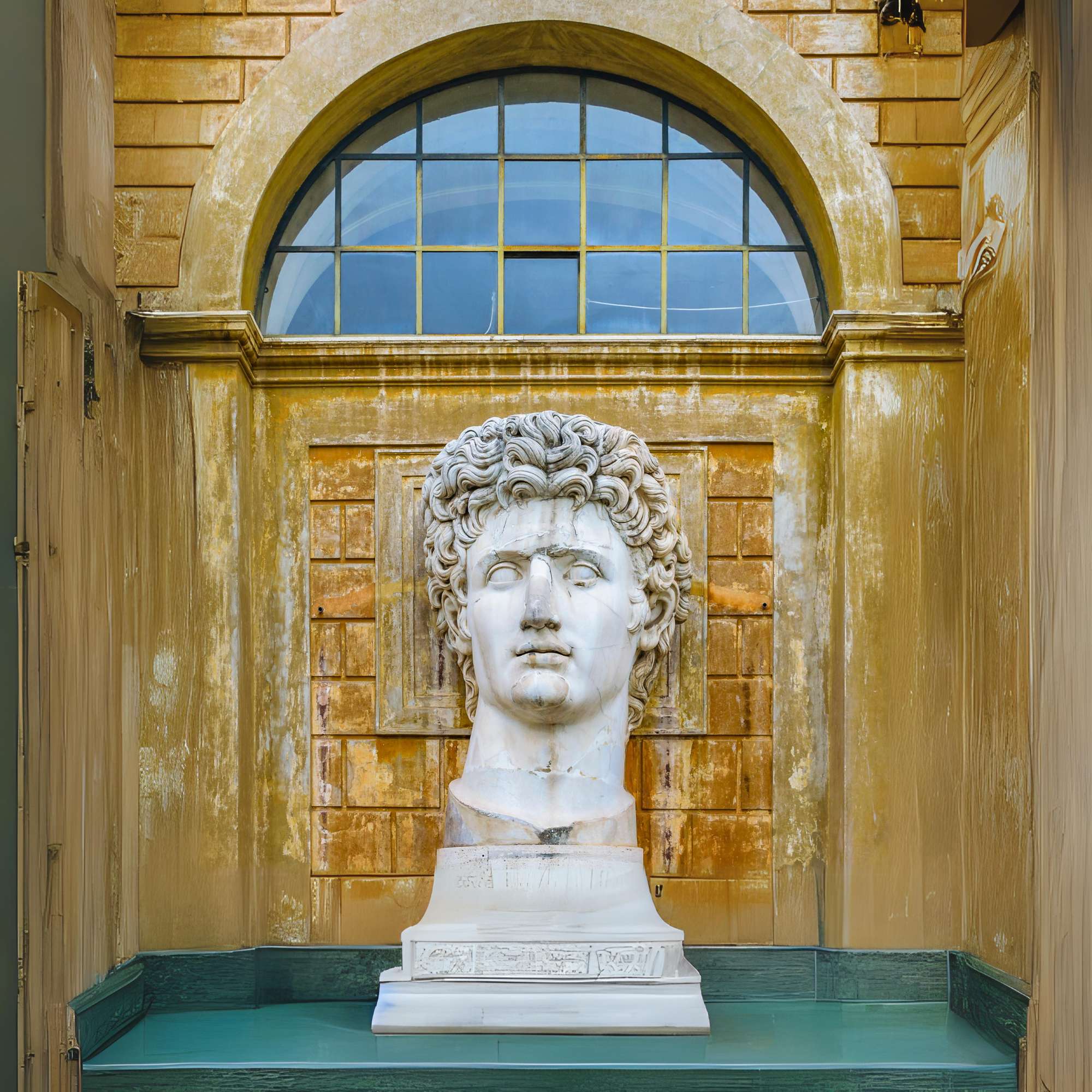
By 27 BCE, Augustus had firmly established a new political order.
Caesar Augustus Statue. Credits: DanFLCreativo by Canva, Illustration: Roman Empire Times
Although he claimed to have restored the Republic, his title of princeps signified his supreme authority. The Senate honored him with the title Augustus, linking him to religious reverence and elevating his status above that of a typical ruler.
His careful management of power, combined with his control over military and financial resources, enabled Augustus to transform Rome into a stable empire that would last for centuries. Despite his claims of stepping back from absolute rule, he wielded power with great skill and foresight, creating a lasting legacy.

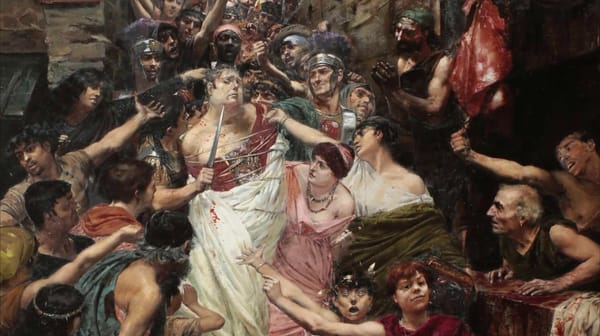
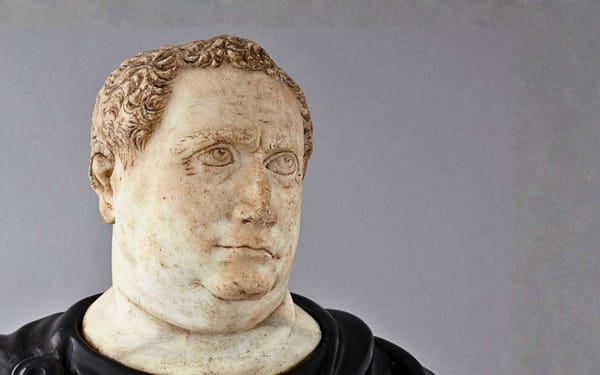


About the Roman Empire Times
See all the latest news for the Roman Empire, ancient Roman historical facts, anecdotes from Roman Times and stories from the Empire at romanempiretimes.com. Contact our newsroom to report an update or send your story, photos and videos. Follow RET on Google News, Flipboard and subscribe here to our daily email.
Follow the Roman Empire Times on social media: